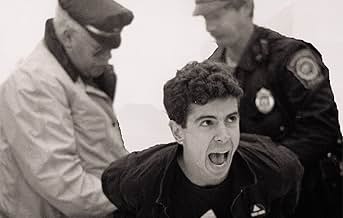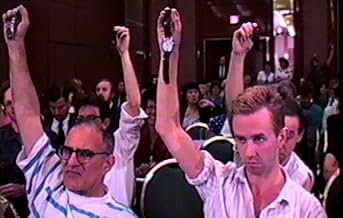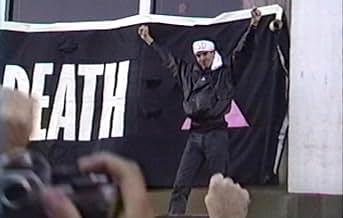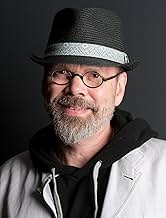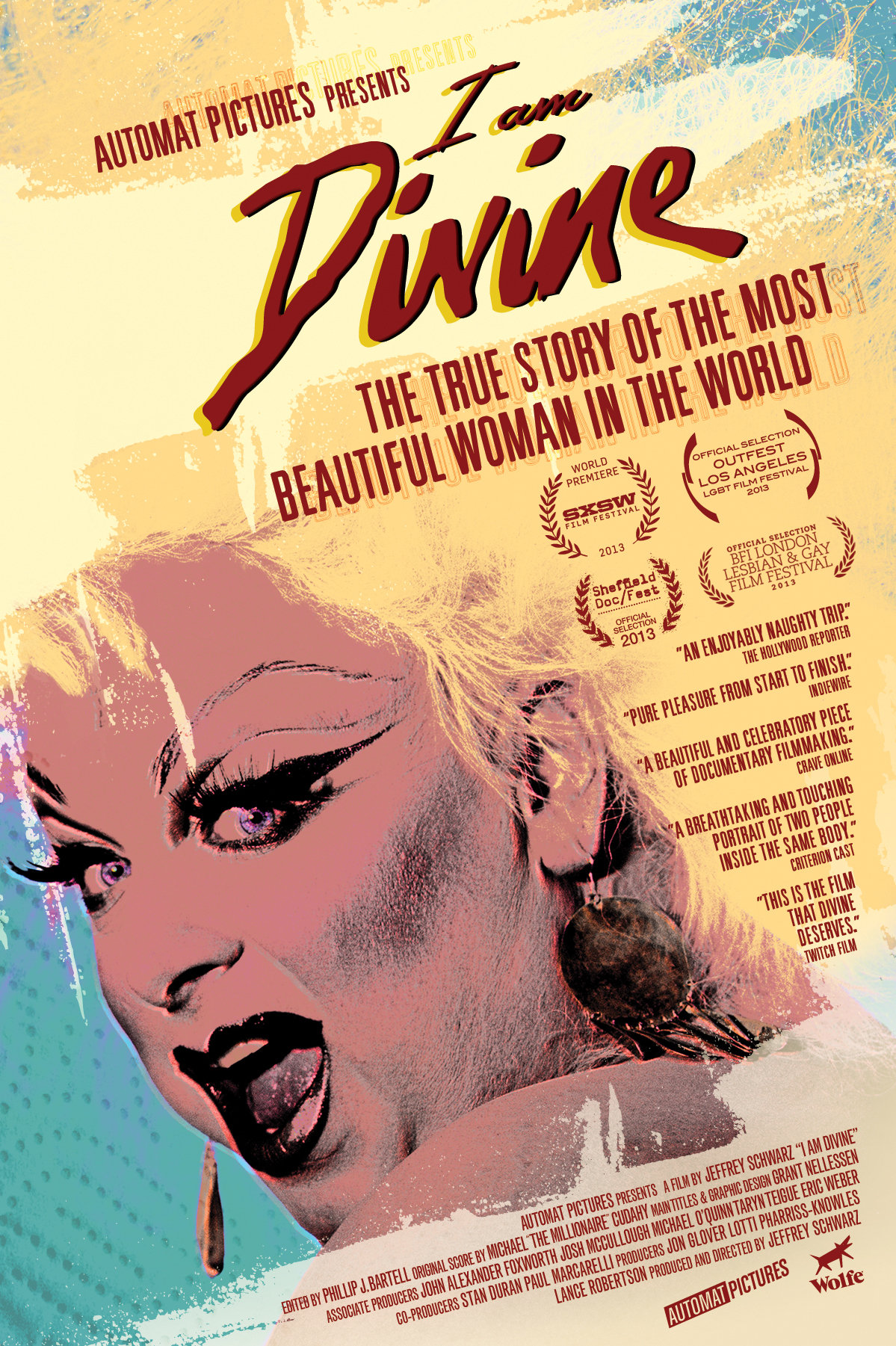IMDb-BEWERTUNG
7,6/10
4473
IHRE BEWERTUNG
Füge eine Handlung in deiner Sprache hinzuThe story of two coalitions -- ACT UP and TAG (Treatment Action Group) -- whose activism and innovation turned AIDS from a death sentence into a manageable condition.The story of two coalitions -- ACT UP and TAG (Treatment Action Group) -- whose activism and innovation turned AIDS from a death sentence into a manageable condition.The story of two coalitions -- ACT UP and TAG (Treatment Action Group) -- whose activism and innovation turned AIDS from a death sentence into a manageable condition.
- Für 1 Oscar nominiert
- 13 Gewinne & 21 Nominierungen insgesamt
Iris Long
- Self - Retired Chemist
- (Archivfilmmaterial)
- (as Iris Long PHD)
Bob Rafsky
- Self - PR Executive
- (Archivfilmmaterial)
Ed Koch
- Self - Mayor of New York
- (Archivfilmmaterial)
Barbara Starrett
- Self - AIDS Physician
- (as Dr. Barbara Starrett)
Franke-Ruta Garance
- Self - Teenager
- (as Garance Franke-Ruta)
Mathilde Krim
- Self - AMFAR, The Foundation for AIDS Research
- (as Mathilde Krim PHD)
Jesse Helms
- Self - R - North Carolina
- (Archivfilmmaterial)
Empfohlene Bewertungen
"How to Survive a Plague" takes real footage from the 1980s and 90s fight for health among the homosexual community and allows us to accurately re-live the tragedy of the rise of AIDS worldwide and the political incompetence to do anything about it. Part of the excellence of this documentary is allowing the actual events to speak for themselves. These activists had the foresight to record their conversations and protests, and these filmmakers had to foresight to know how to edit it to leave the power in the hands of those fighting.
AIDS Coalition to Unleash Power (ACT UP) was formed in New York in 1987. Establishing Larry Kramer as its spokesperson was one of the many smart moves this advocacy group made. He's well-spoken and he knows his facts. Approximately half-way through the film, Larry stands up and delivers a speech so Earth-shatteringly accurate, simple and poignant that the entire audience in the room and the entire audience for the film are left speechless.
There are times during this fight where the group dissipates and internal disagreements arise, and even though a separate group formed, this community stuck together and the emergence of TAG (Treatment Action Group) just doubled their efforts and accomplishments. AIDS patient and homosexual activist Peter Staley was one of the heroes of the film and is likely a personal hero to many. At the beginning, he was young, passionate and out-spoken but he knew his facts and could beat any politician in a debate. Just because he was gay, dying of AIDS and inexperienced doesn't mean he doesn't know what needs to get done and doesn't mean he doesn't know how to do it. Although these struggles took place 20 years ago, it's still inspiring.
They fought against the Catholic Church and judging by the look on the Bishop's face, they won. They fought against the FDA, and won. They fought against the NIH, and didn't really win. They fought against President George H.W. Bush, and the result was basically pounding their head against a brick wall, but at least they made out on his golf course lawn. They fought against President Bill Clinton, and at least they learned their lesson about debating a Rhodes Scholar. More importantly, they learned that it doesn't have to be a fight, and all advocacy, political and governmental groups worked in harmony. But by this time, it was indeed a plague and survival was the only option.
The film had some fascinating facts but unfortunately they were written with a flickering green font on a grey cityscape background and were barely legible. But listen to what they have to say, and ACT UP and TAG will teach you "How to Survive a Plague".
AIDS Coalition to Unleash Power (ACT UP) was formed in New York in 1987. Establishing Larry Kramer as its spokesperson was one of the many smart moves this advocacy group made. He's well-spoken and he knows his facts. Approximately half-way through the film, Larry stands up and delivers a speech so Earth-shatteringly accurate, simple and poignant that the entire audience in the room and the entire audience for the film are left speechless.
There are times during this fight where the group dissipates and internal disagreements arise, and even though a separate group formed, this community stuck together and the emergence of TAG (Treatment Action Group) just doubled their efforts and accomplishments. AIDS patient and homosexual activist Peter Staley was one of the heroes of the film and is likely a personal hero to many. At the beginning, he was young, passionate and out-spoken but he knew his facts and could beat any politician in a debate. Just because he was gay, dying of AIDS and inexperienced doesn't mean he doesn't know what needs to get done and doesn't mean he doesn't know how to do it. Although these struggles took place 20 years ago, it's still inspiring.
They fought against the Catholic Church and judging by the look on the Bishop's face, they won. They fought against the FDA, and won. They fought against the NIH, and didn't really win. They fought against President George H.W. Bush, and the result was basically pounding their head against a brick wall, but at least they made out on his golf course lawn. They fought against President Bill Clinton, and at least they learned their lesson about debating a Rhodes Scholar. More importantly, they learned that it doesn't have to be a fight, and all advocacy, political and governmental groups worked in harmony. But by this time, it was indeed a plague and survival was the only option.
The film had some fascinating facts but unfortunately they were written with a flickering green font on a grey cityscape background and were barely legible. But listen to what they have to say, and ACT UP and TAG will teach you "How to Survive a Plague".
¨Act Up. Fight Back. Fight AIDS.¨
Director David France does an impressive job of gathering information, data, news footage, and home videos during the decade long fight of the activist group known as ACT UP to find a way to stop the AIDS epidemic in this well constructed documentary. The film succeeds in showing us the anger and outrage that these men went through to stop government inaction on such a widespread plague that was killing off millions of people in the world. I was impressed with this chronological history that David France was able to put together in a brilliant way. My only complaint is that some things were repetitive as we see one rally after another in protest against the government. ACT UP assembled to fight and protest against the little support given by the Reagan and Bush administration, against the FDA which was taking too long to approve drugs that several patients needed, and the Catholic Church which condemned them. The documentary is full of anger, and there are several emotional moments as we see what some of these men had to go through in their struggle with the disease. During the 80's having AIDS meant you had almost a 100% chance of dying; it was practically a death sentence. This made the homophobic atmosphere grow in communities where several hospitals neglected to give these patients health care. France follows the activist group, ACT UP, from its forming moments to its divisive ones, and finally to the goals they accomplished through some breakthroughs. It was not an easy fight, but their voice was heard. This is the story of how some of these men were able to survive the plague.
The story begins six years after the AIDS epidemic has begun to spread. It's 1987 and a group of activists known as ACT UP decide to get together in New York City to protest against the way the AIDS epidemic has been treated. They form a coalition for healthcare after over half a million people had died of AIDS around the world. We follow the protests taking place against some government officials and the activists finally begin to get their voiced heard. David France isn't afraid of sharing some strong images with the viewer as he shows everything in a very raw manner. Their next rallies take place over the country protesting against gay hate, and later we see them protest against the FDA for taking too much time to approve drugs. This leads some of the activists to begin receiving some underground drug treatments in order to try to expand their life as the sickness begins taking a toll on them. They begin to study and discover what the disease really was and fight for possible solutions as they form committees in order to understand AIDS better. They also form support groups for those people who had fear of coming out during that dangerous time. They studied several ways to slow down the virus, but as time passed more and more deaths were taking place. The film follows the decade long fight of ACT UP from 1987 to 1996 where they finally reached a breakthrough, although it came at a great cost.
Some of the important things the AIDS community accomplished were rising consciousness of what the disease really was, they made AIDS become an important issue during the 1992 presidential campaign, and they finally found drugs that helped slow down the effects of the virus. It wasn't an easy fight as we feel the anger some of these men had towards the ineptness of the government of the time and the loss of some of their close friends and relatives. This was a very insightful story and part of American history that needed to be told. France did an excellent job at putting together all the footage and delivering a powerful and emotional documentary. It did drag a little, but it was a strong film.
http://estebueno10.blogspot.com/
Director David France does an impressive job of gathering information, data, news footage, and home videos during the decade long fight of the activist group known as ACT UP to find a way to stop the AIDS epidemic in this well constructed documentary. The film succeeds in showing us the anger and outrage that these men went through to stop government inaction on such a widespread plague that was killing off millions of people in the world. I was impressed with this chronological history that David France was able to put together in a brilliant way. My only complaint is that some things were repetitive as we see one rally after another in protest against the government. ACT UP assembled to fight and protest against the little support given by the Reagan and Bush administration, against the FDA which was taking too long to approve drugs that several patients needed, and the Catholic Church which condemned them. The documentary is full of anger, and there are several emotional moments as we see what some of these men had to go through in their struggle with the disease. During the 80's having AIDS meant you had almost a 100% chance of dying; it was practically a death sentence. This made the homophobic atmosphere grow in communities where several hospitals neglected to give these patients health care. France follows the activist group, ACT UP, from its forming moments to its divisive ones, and finally to the goals they accomplished through some breakthroughs. It was not an easy fight, but their voice was heard. This is the story of how some of these men were able to survive the plague.
The story begins six years after the AIDS epidemic has begun to spread. It's 1987 and a group of activists known as ACT UP decide to get together in New York City to protest against the way the AIDS epidemic has been treated. They form a coalition for healthcare after over half a million people had died of AIDS around the world. We follow the protests taking place against some government officials and the activists finally begin to get their voiced heard. David France isn't afraid of sharing some strong images with the viewer as he shows everything in a very raw manner. Their next rallies take place over the country protesting against gay hate, and later we see them protest against the FDA for taking too much time to approve drugs. This leads some of the activists to begin receiving some underground drug treatments in order to try to expand their life as the sickness begins taking a toll on them. They begin to study and discover what the disease really was and fight for possible solutions as they form committees in order to understand AIDS better. They also form support groups for those people who had fear of coming out during that dangerous time. They studied several ways to slow down the virus, but as time passed more and more deaths were taking place. The film follows the decade long fight of ACT UP from 1987 to 1996 where they finally reached a breakthrough, although it came at a great cost.
Some of the important things the AIDS community accomplished were rising consciousness of what the disease really was, they made AIDS become an important issue during the 1992 presidential campaign, and they finally found drugs that helped slow down the effects of the virus. It wasn't an easy fight as we feel the anger some of these men had towards the ineptness of the government of the time and the loss of some of their close friends and relatives. This was a very insightful story and part of American history that needed to be told. France did an excellent job at putting together all the footage and delivering a powerful and emotional documentary. It did drag a little, but it was a strong film.
http://estebueno10.blogspot.com/
How to Survive a Plague is definitely one of the year's most awe-inspiring, riveting, go-into- action documentaries. Through a mightily informative combination of recent interviews and archival footage the film exhibits a noteworthy fight against both ignorance and indifference towards such a deadly epidemic as the one caused by the HIV virus. This is also a serious, heartfelt, touching depiction of a movement that was ready to change something, even if it meant sacrificing a few soldiers along the way. And yes, the word 'soldiers' is perfectly suitable when it comes to all those young people who devoted their whole lives to a global, far-reaching cause.
Year by year, How to Survive a Plague presents a through and insightful look at the actions that propelled the LGBT activists in some of their most tragic days. Undeniably, the story behind such coalitions as Act Up and TAG are exhilarating ones. Even though the then-deadly virus already infected many of those young people, they still didn't lose faith in the cause and decided to stand up against the government and its reluctance to help those in need. Lead by a few charismatic and devoted individuals Act Up changed to course of history and it's definitely not an exaggeration. By making the whole world aware of the seriousness of this ferocious AIDS plague the activists made the world a place friendly for all inhabitants of this planet, no matter their sexual orientation or skin color.
How to Survive a Plague is a clever, intriguing and fortifying documentary. Every scene of the film matters, every voice raised is a significant one. Decidedly so, the interviews shine a new light on the past events presented in the archival footage, and their coming together combines for a valuable film experience.
Year by year, How to Survive a Plague presents a through and insightful look at the actions that propelled the LGBT activists in some of their most tragic days. Undeniably, the story behind such coalitions as Act Up and TAG are exhilarating ones. Even though the then-deadly virus already infected many of those young people, they still didn't lose faith in the cause and decided to stand up against the government and its reluctance to help those in need. Lead by a few charismatic and devoted individuals Act Up changed to course of history and it's definitely not an exaggeration. By making the whole world aware of the seriousness of this ferocious AIDS plague the activists made the world a place friendly for all inhabitants of this planet, no matter their sexual orientation or skin color.
How to Survive a Plague is a clever, intriguing and fortifying documentary. Every scene of the film matters, every voice raised is a significant one. Decidedly so, the interviews shine a new light on the past events presented in the archival footage, and their coming together combines for a valuable film experience.
Seeing this title I was expecting something of an apocalyptic, end-of- the-world zombie type film. In fact, this documentary was far truer, exploring a disease which has cost many lives. One might say I have an interest in LGBT causes and maybe this is why I decided to see this documentary, but AIDS is not exclusive to any community.
This documentary starts in the early 80's in New York where young men and women are dying of AIDS. There is no treatment and they are even refused in the hospitals. Each with their individual pain couldn't do much so they organized and created "ACT UP" whose main focus was to be an activist group, which through civil disobedience would bring attention, awareness, and most importantly a cure to AIDS. The documentary retraces some of their fights and quarrels mostly through archives but also with some more recent interviews. It covers some of the darkest hours before the discovery of the lucky combination that would prolong the lives of many, but would come too late to save those of many more.
I think the topic is one of the most important there is. It feels so distant but I can actually remember hearing about a treatment to AIDS back then. It meant very little to me at the time. I can't say that I really loved the way the documentary was going about things but I liked the substance very much. It is very scary to think back and imagine those people taking whatever medication that was on trial simply because at that point it couldn't have done more harm.
While I think activism is double-edged blade and can sometimes backfire, it seems that this very activism has saved many lives and the alerted politicians who at first refused to talk about how many lives AIDS had taken. There are some very emotional personal stories here, and if my rating was based solely on the people in this documentary, I'd give them all a 10 for their courage and perseverance through this tremendous pain.
I liked: The topic. Historically important.
I disliked: The shaky archive footage, the constant shouting and confrontations. It had only one sequence to explain the actual biological/chemical aspects, which I felt were important and deserved more screen time.
74/100 A little over 20 years ago, there were presidents who would go on television and say that AIDS has behavioral causes that should be looked at. This documentary could definitely teach them a thing or two.
This documentary starts in the early 80's in New York where young men and women are dying of AIDS. There is no treatment and they are even refused in the hospitals. Each with their individual pain couldn't do much so they organized and created "ACT UP" whose main focus was to be an activist group, which through civil disobedience would bring attention, awareness, and most importantly a cure to AIDS. The documentary retraces some of their fights and quarrels mostly through archives but also with some more recent interviews. It covers some of the darkest hours before the discovery of the lucky combination that would prolong the lives of many, but would come too late to save those of many more.
I think the topic is one of the most important there is. It feels so distant but I can actually remember hearing about a treatment to AIDS back then. It meant very little to me at the time. I can't say that I really loved the way the documentary was going about things but I liked the substance very much. It is very scary to think back and imagine those people taking whatever medication that was on trial simply because at that point it couldn't have done more harm.
While I think activism is double-edged blade and can sometimes backfire, it seems that this very activism has saved many lives and the alerted politicians who at first refused to talk about how many lives AIDS had taken. There are some very emotional personal stories here, and if my rating was based solely on the people in this documentary, I'd give them all a 10 for their courage and perseverance through this tremendous pain.
I liked: The topic. Historically important.
I disliked: The shaky archive footage, the constant shouting and confrontations. It had only one sequence to explain the actual biological/chemical aspects, which I felt were important and deserved more screen time.
74/100 A little over 20 years ago, there were presidents who would go on television and say that AIDS has behavioral causes that should be looked at. This documentary could definitely teach them a thing or two.
I really don't understand how this doco only scores a 7.3. It's the most compelling piece of film I have seen in years, I was gripped from the beginning to the end. It is basically about the early fight for treatment research and recognition that HIV sufferers have a disease and were entitled to respect and humanity from the wider community as it was not a punishment from God for a so called "lifestyle choice".
It is structured by piecing together a lot of archive film that is edited so brilliantly that it like watching a scripted film that tells a great story, a film with real stars and characters. The subject matter is based on HIV but what I took away from the film is how people with such a motivation did "act up" and used democracy to achieve an objective. It is compulsive viewing for any interested in any type of campaigning.
My only criticism of the film is it did not fully explore the reason for the early antagonism toward people with the virus and why the medical establishment and governments at that time were slow to act. But in the end I seen a film about a story I did not know about, a story about successful democratic campaign that has saved millions of lives. I now think these early campaigners should have got Nobel recognition. The film is that powerful.
It is structured by piecing together a lot of archive film that is edited so brilliantly that it like watching a scripted film that tells a great story, a film with real stars and characters. The subject matter is based on HIV but what I took away from the film is how people with such a motivation did "act up" and used democracy to achieve an objective. It is compulsive viewing for any interested in any type of campaigning.
My only criticism of the film is it did not fully explore the reason for the early antagonism toward people with the virus and why the medical establishment and governments at that time were slow to act. But in the end I seen a film about a story I did not know about, a story about successful democratic campaign that has saved millions of lives. I now think these early campaigners should have got Nobel recognition. The film is that powerful.
Wusstest du schon
- Zitate
Larry Kramer: [addressing to an angry protester] Plague! We're in the middle of a fucking plague, and you behave like this? ACT UP has been taken over by a lunatic fringe!
- VerbindungenFeatured in The Oscars (2013)
- SoundtracksThat's Us/Wild Combination
Performed & Arranged by 'Superhuman Happiness'
Written by Arthur Russell (as Charles Arthur Russell Jr.) (ASCAP)
Courtesy of Domino Publishing Company Ltd.
Top-Auswahl
Melde dich zum Bewerten an und greife auf die Watchlist für personalisierte Empfehlungen zu.
- How long is How to Survive a Plague?Powered by Alexa
Details
- Erscheinungsdatum
- Herkunftsland
- Offizielle Standorte
- Sprache
- Auch bekannt als
- Làm thế nào để sống sót trong bệnh dịch
- Produktionsfirmen
- Weitere beteiligte Unternehmen bei IMDbPro anzeigen
Box Office
- Bruttoertrag in den USA und Kanada
- 132.055 $
- Eröffnungswochenende in den USA und in Kanada
- 28.250 $
- 23. Sept. 2012
- Weltweiter Bruttoertrag
- 132.055 $
Zu dieser Seite beitragen
Bearbeitung vorschlagen oder fehlenden Inhalt hinzufügen





